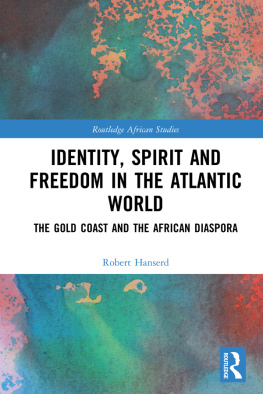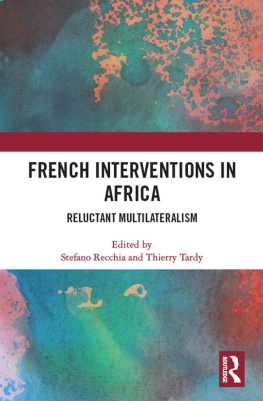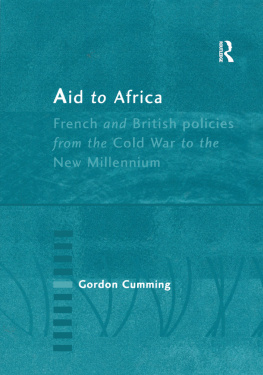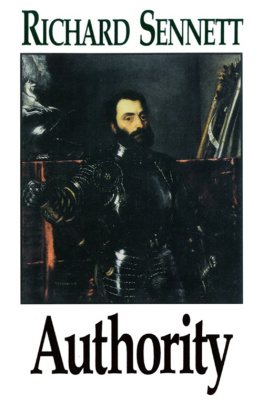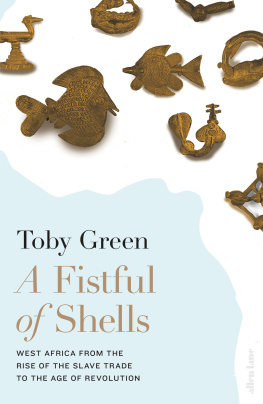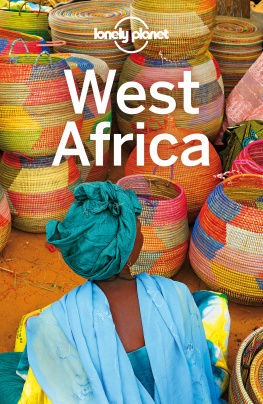AFRICAN ETHNOGRAPHIC STUDIES
OF THE 20TH CENTURY
Volume 19
FREEDOM AND AUTHORITY IN FRENCH WEST AFRICA
FREEDOM AND AUTHORITY IN FRENCH WEST AFRICA
ROBERT DELAVIGNETTE
First published in 1950 by Oxford University Press for the International African Institute, updated in 1968.
This edition first published in 2018
by Routledge
2 Park Square, Milton Park, Abingdon, Oxon OX14 4RN
and by Routledge
711 Third Avenue, New York, NY 10017
Routledge is an imprint of the Taylor & Francis Group, an informa business
1950, 1968 International African Institute
All rights reserved. No part of this book may be reprinted or reproduced or utilised in any form or by any electronic, mechanical, or other means, now known or hereafter invented, including photocopying and recording, or in any information storage or retrieval system, without permission in writing from the publishers.
Trademark notice: Product or corporate names may be trademarks or registered trademarks, and are used only for identification and explanation without intent to infringe.
British Library Cataloguing in Publication Data
A catalogue record for this book is available from the British Library
ISBN: 978-0-8153-8713-8 (Set)
ISBN: 978-0-429-48813-9 (Set) (ebk)
ISBN: 978-1-138-57945-3 (Volume 19) (hbk)
ISBN: 978-0-429-50797-7 (Volume 19) (ebk)
Publishers Note
The publisher has gone to great lengths to ensure the quality of this reprint but points out that some imperfections in the original copies may be apparent.
Disclaimer
The publisher has made every effort to trace copyright holders and would welcome correspondence from those they have been unable to trace.
FREEDOM AND AUTHORITY
IN
FRENCH WEST AFRICA
ROBERT DELAVIGNETTE
Directeur des Affaires Politiques, Ministre de la France
doutre-mer; ancien Directeur de lEcole Nationale de
la France doutre-mer.
FRANK CASS & CO. LTD.
1968
CONTENTS
First published by Oxford University Press for the International African Institute
Published by
FRANK CASS AND COMPANY LIMITED
67 Great Russell Street, London WC1
by arrangement
First edition 1950
New impression 1968
A translation of
Service Africain
(Paris, Gallimard, 1946)
The International African Institute desires to express its thanks to Professor M. Fortes, Miss Daphne Trevor and Miss M. Manoukian for the preparation of this translation which has been edited by its Secretary, Mrs. B. E. Wyatt.
Printed in Great Britain by Thomas Nelson (Printers) Ltd., London and Edinburgh
F IRST of all, I wish to express my thanks to the International African Institute for having undertaken the publication of Service Africain in English. To readers of the English version I should like to say what pleasure it gives me to know that Service Africain is now presented for their inspection, attention and criticism.
My pleasure is all the greater because never has it been more urgently necessary for the knowledge acquired and the methods tested in Africa by the different European nations to be pooled and compared. Only thus will it be possible or profitable to seek a co-ordination of policies and programmes and in Africa, as in many other parts of the world, it is now very clear that the actions of Britain and France cannot be effective except in so far as they are complementary.
British and French, during the last century, played a vital part in the discovery of Africa and its peoples. Their encounters at the chief crossroads of that continent gave rise to a rivalry which rapidly developed into an emulation profitable to all, and chiefly to the African world.
To-day, if a new stage of progress is to be achieved, experiences, results and proposals must be exchanged, compared and revised. For the discovery of Africa is not all: the task that remains to be done is perhaps more difficult.
On the one hand, it is necessary to take responsibility for its administration, its evolution and, ultimately, its integration into the contemporary world. On the other hand, it is most important to reveal and explain Africa to international opinion which, well-meaning but ill-informed, knows little of it and yet believes it knows enough.
No doubt, we do not envisage our task in the same way. Great Britain is tending towards the formation in Africa of vast negro dominions which to-morrow will be members of a reorganized and expanded Commonwealth. France, on the contrary, faithful to a long tradition, regards her over-sea territories as an integral part of the national community; she will not, nevertheless, reject the adjustments and adaptations which human and physical conditions overseas demand; but she believes that a wide measure of self-government for local groups will solve the special problems arising in Africa. Paris is not governed in the same way as Lyons, nor Lyons in the same way as Marseilles, but the laws of the Republic are everywhere enforced. This is the direction in which France proposes to advance in order to reconcile her desire to preserve the continuity of the Republic with the legitimate autonomy of African peoples.
But the aim pursued, and in large measure already realized, is the same. Britain and France, by different roads, but to the same extent, have given to the Africans the power to rule themselves. British and French can give an answer to those who, not always with entirely disinterested motives, claim to intervene at the eleventh hour in the government of native territories; we can reply that there are no non-self-governing territories in Africa, only peoples freely associated with the future of Europe.
To introduce native Africa into the modern world; to prepare the world to receive this new continent: these, to-day, are the chief requirements of that service which we are bound to undertake in Africa together until it is completed. May we learn to carry, in fellowship and harmony, this precious but heavy burden.
R. D ELAVIGNETTE
Paris: Ministre de la France doutre-mer.
Decembre 1949.
I would also like to record my debt to an English Africanist, Miss Daphne Trevor, who was responsible for the first draft of the translation.
A DMINISTRATION AND A UTHORITY F AITH AND E XPERIMENT
A FTER twenty years in the Colonial Service, I may justly call myself a colonial administrator, and yet I find it increasingly difficult to define what a colonial administrator really is and does. And now that I have to teach the job to my young comrades of the cole Nationale de la France doutre-mer in Paris I find it even harder to formulate than I did when I was actually carrying it out. It used to tax my mind during my days in African residencies, but then it was enough for me to live the life without having to explain it to myself. Now, in Paris, it faces me inescapably within the classroom walls: here you should answer, this you ought to know. Yet the more I think about it, the less I believe that it can be set forth in all its numerous aspects, which vary in importance with different places and times.






